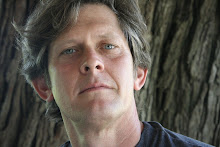
This week's newspaper column: (Read it in the Hattiesburg American.)
The concept of sustainability has been sustaining the earth for as long as it’s been around – that’s why this planet is still here. Yet there seems to be some disagreement among twenty-first century humans about the meaning of sustainability.
Some people claim that sustainability is a collection of costly boutique solutions only affordable to the extravagantly wealthy for the sole purpose of elevating guilt about how their retched excesses are allegedly destroying the planet. Wrong. Sustainability is not an isolated tactical solution here and there; it is set of interdependent principles that work to sustain the life of the planet and its inhabitants. Here are a few hopefully-not-so-boring concepts:
Sustainability is self-perpetuating. In a sustainable world, life goes on naturally as the decayed remains of the old feed the next generation of growth. In a sustainable world, there is no waste to be buried in a landfill. The last phase of one cycle is the first phase of another. As architect William McDonough and chemist Michael Braungart put it so poetically in their classic book “Cradle to Cradle” - waste equals food.
Sustainability is holistic. Isolated solutions are inconsistent with sustainable practices. The history of man is full of unintended consequences as a result of isolated solutions. Use DDT to control pesky mosquitoes and you wind up killing humans, channelize a river to prevent floods and you deplete rich farmland of important replenishing nutrients, kill off a species here and another codependent species dies off, and the list goes on and on. Even when it’s not apparent, decisions in our physical world are never truly in isolation . In a highly sustainable environment, everything is connected to everything.
Sustainability is organic and dynamic, and nature is the best example of sustainable growth. In nature, growth happens where renewable resources abound. In the wild, diversity is a constant. Life flourishes when multiple species of flora and fauna exist in close proximity. Nature encourages integration and coexistence. The most sustainable places on earth are where, naturally, the greatest diversity occurs. A suburban lawn - limited by choice and Roundup weed killer to one grass species - by contrast, is one of the least sustainable micro-systems on earth.
Sustainability takes the long view, and is not necessarily efficient in the short run. “Slash and burn” expediency has quickly enriched many a businessman, and the pressure of tomorrow’s stock price is no friend of green solutions, but sustainability is the one thing that is essential for our long-term survival. Non-sustainable solutions are like sparklers: fast spectacular burn - then nothing. Sustainable solutions, by nature, endure and become stronger with the passage of time.
And most important, sustainable solutions are not necessarily costly. In fact, Mother Nature has been providing no-cost solutions long before humans lurched at the reins. By taking our lessons from nature, we have a ready roadmap to all things sustainable.
Put away your GPS and, instead, take a good look at the world around you.





4 comments:
thank you for our share
Thanks for sharing this article full of wonderful insights. I enjoyed reading your blogs. Keep posting!
Read this article. I learn lot information and make open my eyes. And invite you come to our online store to choose any you like or need the product; they are high quality and cheap price. And we offer the best service to you! And hope you have great shopping time in our online store!
Muy pero muy interesante el blog!!!
La ecologia es lo unico que nos uniria en el Mundo.
Post a Comment